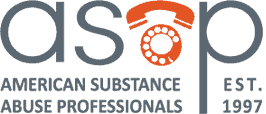Inside a factory near this lakeside city, a man holding a blowtorch is putting the finishing touches on a plastic rain barrel that will soon make its way to a home and garden section somewhere in America.
He is Talib Alzamel, a 45-year-old Syrian refugee who arrived here last summer with his wife and five children. He can’t speak much English, but neither can most of the 40 refugees who work at Sterling Technologies, a plastic molding company based near the shores of Lake Erie. They earn $8-14 an hour.
The refugees at Sterling come from all over the world, from Syria to Sudan, Chad to Bhutan. And they’ve all passed the company’s standard drug test.
“In our lives, we don’t have drugs,” said Alzamel, who was hired within three months after arriving in Pennsylvania. “We don’t even know what they look like or how to use them.”
But for an increasing number of American-born workers, passing drug tests is a big problem.
The percentage of American workers testing positive for illegal drugs has climbed steadily over the last three years to its highest level in a decade, according to Quest Diagnostics, which performed more than 10 million employment drug screenings last year. The increase has been fueled in part by rural America’s heroin epidemic and the legalization of recreational marijuana in states like Colorado.
With roughly half of US employers screening for drugs, failed tests have real consequences for the economy.
More than 9% of employees tested positive for one or more drugs in oral fluid screenings in 2015, the most recent year for which data was available. And the problem is even worse at places like Sterling Technologies.
“Twenty percent of the people are failing,” said Cary Quigley, the company’s president. “We’re seeing positive tests anywhere from marijuana through amphetamines, right all the way through crystal meth and heroin.”
Which is why refugees like Alzamel, despite some language barriers, are quickly snapping up jobs.
“The big factories … they have a problem with the drugs, so like every time they fire someone, they replace him with the refugee, to be honest,” said Bassam Dabbah, who works at a US Committee for Refugees and Immigrants field office in Erie. “The only barrier is the language, but they are picking it up very quick.”

